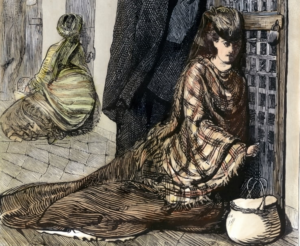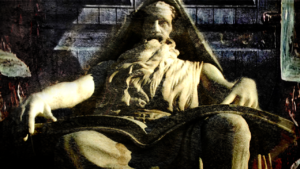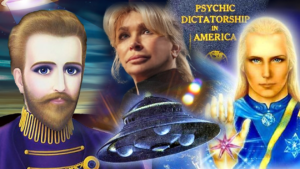What Does “Religion” Really Mean?

The Missing Link in Religious Studies
The religions present in the world today, not to mention the many religions which existed in the distant past, might appear so diverse and discordant that it would be foolish to attempt examining “religion” as a category in the first place. In fact, for most of human history, people did not really consider the beliefs and practices which we now call “religious” as being any sort of independent category of action or experience. They were totally integral and inseparable from the wider edifice of a culture. As you will see later in this piece, we modern westerners are only capable of compartmentalizing and categorizing “religion” into its own separate box because we have become adherents of a religion that attempts to hide its own religious nature.
The average western person is very likely to possess a number of metaphysical priors and assumptions that they do not even recognize as being metaphysical. These assumptions have usually been absorbed passively from the cultural environment of the 20th and 21st centuries, and they’re often very stubborn because the modern “ambient ideology” has a nasty streak of arrogance against historic cultures, an arrogance which it justifies by citing the immense increase of physical quality of life and material wealth seen in modernity.
In the course of my studies I have come to believe that religion cannot be seen as a discrete set of actions and assumptions populated by different specimens to be compared and contrasted. Instead I believe that the religious impulse and the varying practices which arise from it are inherent “organs” of the human being, perhaps not of his individual biology but certainly of his eusocial and “composite” nature. This theory is not particularly new, but from what I have seen it never seems to lead to a satisfactory conclusion; It tends to be put forward by people who are overall dismissive of the actual claims of any given religion, people who are looking to explain religion away instead of truly explain religion.
Exoterica: Religions’ Social Utility
Now, if we want to understand religion, let’s start with the visible and accessible parts of it, the immediate, practical effects that religious rites, rules, and communities have on both individuals and their societies. This is actually a challenging place to start because this is where religions tend to differ most. This presents the added difficulty that much of the existing sociological or psychological research on religion exists entirely within the christian or post-christian paradigm of the West and fails to distinguish what is inherent to human religiosity from what is unique to christianity or the other Abrahamic sects (for example, the laughable “conflict theory” of religion).
The most obvious function that most people are aware of is social. Religion structures social life by determining or justifying people’s positions relative to each other and the obligations, rights, and privileges that accord with these positions. An extremely important and ancient example is hospitality, the ethical standard of behavior between host and guest. This ethic was communicated and preserved in the myths of many, if not most, cultures. The Greeks tell a story of Zeus and Hermes disguising themselves as wanderers to test the hospitality of humans, punishing the inhospitable and rewarding the kindness of Philemon and Baucis who finally hosted them graciously despite their poverty. The Norse tell of the god Heimdall receiving hospitality from three families of differing means and rewarding each with offspring, as well as several myths involving the wanderings of Odin. This social function of enforcing the ethic of hospitality was extremely important to premodern people for whom journeys were long and dangerous. Without this ethic the extensive trade networks that facilitated the complex ancient economy would not have been possible, nor would there have been the cultural exchanges that influenced philosophy and religion over the years.
Moral Causes, or Material?
Hospitality is only one example, though, and not even the one that most people would first think of when considering the social effects of religion. There are also the “family values” that, at least theoretically, determine the shape and function of the average family unit in a culture. This is a messy line of inquiry or justification, though, because family formation is also very subject to material influences. For example, the American two-parent household of only immediate relations, and increasingly the American split or single-parent family, did not emerge from any religious doctrine. The “immediate” family was a simple adaptation to the economic reality that Americans often have to relocate in order to pursue careers and so extended families end up spread across a large distance. Single or split-parent families are likewise a simple adaptation to the introduction of women to the workforce and the resulting reorganization of society. We can extend this logic and recognize that the huge families of the past were largely an adaptation to agricultural life and the large amount of cheap or free labor required for it. Despite the raw economic or sociological forces at work here, though, “religion” does still play a role – but often more as a coping mechanism than an organizing principle. I use religion in quotes because we have to acknowledge religious impulses and tendencies as something that goes beyond specific creeds and is ambiently omnipresent as the value-making faculty of culture. American families were not necessarily immediate and patricentric because of protestant faiths, but these traits weren’t independent from those faiths either. Those churches, both through doctrine and through social example, inculcated an expectation in people across generations of what a family looks like, and people then went on to mimic that model. When those churches were dominant cultural forces, that model of the family was dominant as well.
The same process is at work in the fact that Catholic and diaspora Orthodox Christians often maintain tight extended family groups even when they are non-practicing “cultural christians.” Their example is also useful because it’s easy to see how ethnic and economic considerations intersect with religious ones; catholic doctrines are not more “pro-grandma” or “pro-cousin” than protestant ones, but most American catholics are catholic due to their ancestry, and that ancestry usually hails from ethnicities that both have more clannish cultures and also tended to be less socioeconomically advantaged than “old-stock” WASPS.
America’s Hidden Religion: “Ex-Christianity”
If these two specific creeds accompany and/or encourage specific family formations, then for split/single-parent families we should also expect to find some religious or para-religious ethic connected. And this ethic is none other than the current state religion of America itself – materialistic “ex-christianity.” Here, certain elements of religious ethics remain vestigial but are rapidly decaying without their metaphysical basis. The most important characteristic of this philosophy is that it lacks any way to truly justify making tough sacrifices. The sacrifices that are necessary to keep two people committed to each other and to their children are very steep. The loss of a cultural ethic of sacrificing personal comfort, wealth, and ease for the sake of benefits beyond this life (whether that means heaven or simply the lives of your descendants) coincides with material and cultural developments that have truly called into question the value of the possible rewards. No matter how much you sacrifice for your children, they are growing up in a culture where most media is subtly or blatantly encouraging them to disrespect you and your beliefs, to view you and your culture as either obsolete or repressive. And what TikTok doesn’t destroy, divorce court, the IRS, or a downturning economy might. These are all by no means insurmountable obstacles, but they are non-negligible risks. As birth rates plummet (and yes, the factors causing single parenthood heavily overlap with the causes of birthrate decline) almost every western or westernized individual will have to face these risks head-on in their own lives. To do this, people will require a much stronger ethic than what American ex-christianity has to offer.
The Individual and the Collective
Now, here we get into the territory of the inescapable fact that whatever impact religion has on social matters, it can only create by having an equal and corresponding impact in the hearts of individual people. In fact all community-defining or community-creating powers and rules are subject to this same law, because society grows out of individuals like the trunk of a tree growing from its roots. So from here on out, when considering religion’s social functions, we also have to consider its personal functions.
Taboo
Firstly, let us consider taboo. Taboo – and the tools of ostracization or violence that enforce it – is a crucial way of aligning social priorities with the individual’s decision-making process. Taboos emerge into a society from a number of different origins. Often they serve as limiters on social “arms races,” like with norms about the permissible number of sexual partners. Many taboos derive from natural human instincts, such as disgust, fear, or jealousy. Taboos often attempt to minimize the intrusion of negative instincts into social life by preventing people from triggering them in each other or by instilling internal discipline over them. Historic rituals of initiation into manhood, for example, often served the purpose of teaching an initiate to manage fear. Despite often having violent content or increasing a man’s potential for effective violence, these initiations increased safety within the society by improving a young male’s ability to adhere to taboos against internecine violence because violence is often triggered by fear or disgust. Even simple taboos against speaking rudely to strangers or against stealing serve the vital function of encouraging general social goodwill. Taboos have an inherent duality in that they are created and enforced socially, externally to the individual, but individuals can internalize them in the course of living in society and so often observe them even when alone.
Taboo is especially relevant and interesting because of modern society’s strange relationship to it. With the fundamental basis of our value system being replaced over only a few decades, the West has demolished its old taboos and established new ones with astonishing speed. The speed of this transformation has allowed us to witness some very interesting things about taboo and about culture-making in general.











